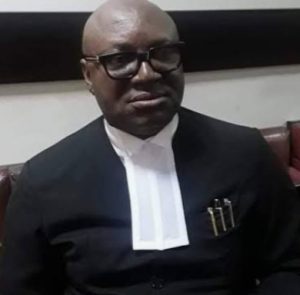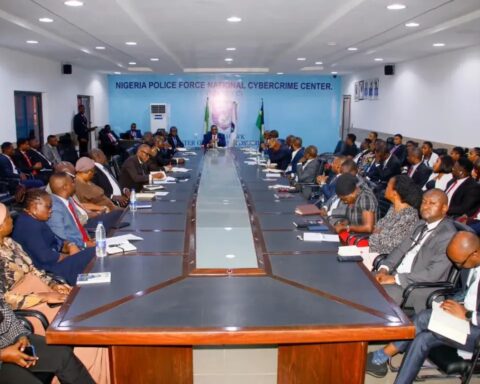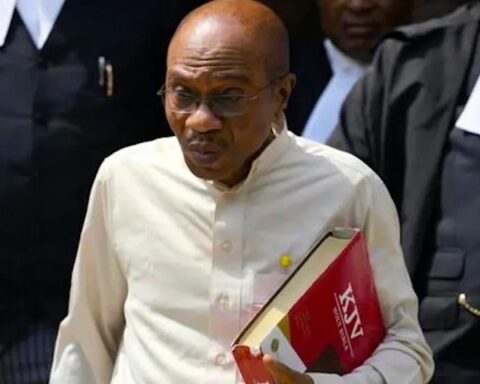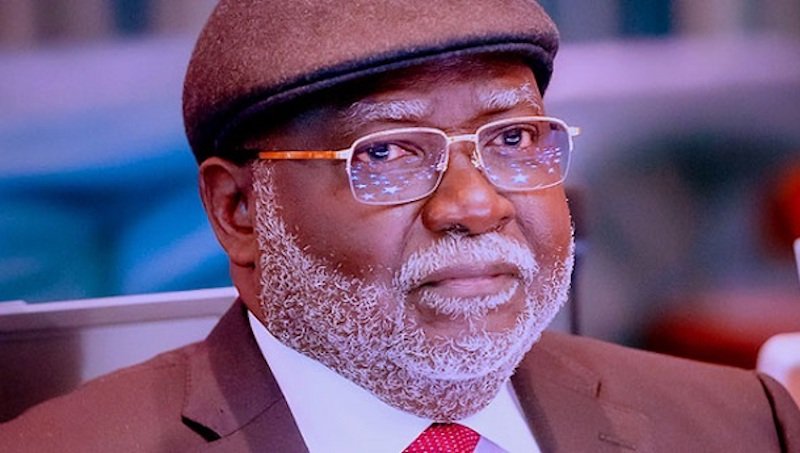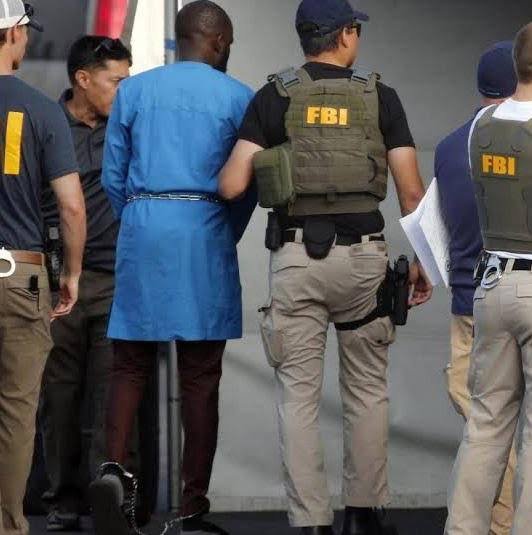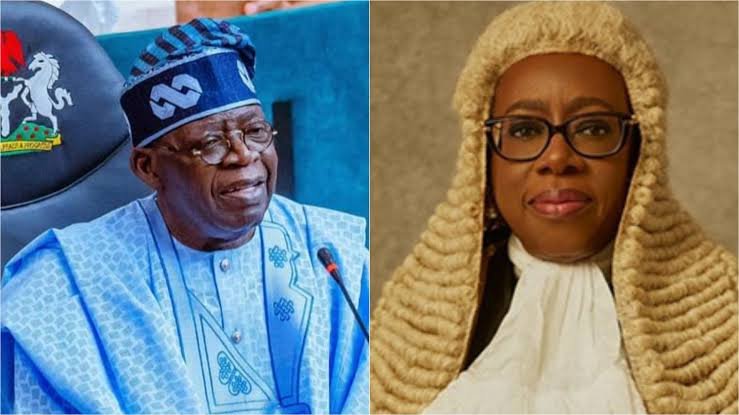Secretary to the Body of Senior Advocates of Nigeria (BOSAN), Olumide Sofowora, SAN, has confirmed that investigation has commenced on the the scandal rocking the bid to take ownership of a London property linked to one-time Minister of the Federal Capital Territory (FCT), the late General Jeremiah Useni by a Senior Advocate of Nigeria and rights activist, Prof. Mike Ozekhome, and one “Tali Shani”.
Law teacher, author and a former Chair of the National Human Rights Commission (NHRC), Prof. Chidi Odinkalu, had questioned why BOSAN has not taken any action concerning the matter.
In a post made via his X (formerly Twitter) handle, Odinkalu said: “In the wake of this scandal over that property in the UK involving the SAN, the Body of Senior Advocates, #BOSAN (as the self-regarding coven of SANs is called), once again proves itself unwilling & unable to or uninterested in looking at the mirror.”
In a WhatsApp chat with Law & Society Magazine, however, the BOSAN’s Secretary said: “The matter was referred to BOSAN’s Ethics Committee over a week ago.”
House 79 Randall Avenue, London NW2, the property at the centre of a legal dispute, was purchased in 1993 by Useni under the name “Tali Shani”.
However, delivering judgment in the suit filed by one “Ms Tali Shani”, a London property tribunal last week concluded that neither Ozekhome nor the plaintiff, Ms Tali Shani, was entitled to claim ownership of the property, due to irreconcilable testimonies of witnesses called by both parties, according to TheCable online.
Mr Ewan Paton of the First-tier Tribunal (Property Chamber), ruling in the suit filed in 2021, held that neither the applicant, “Ms Tali Shani”, nor the respondent, Ozekhome, could prove ownership of 79 Randall Avenue, London NW2.
Recall that Useni, who died earlier this year in France after a protracted illness, was a star witness for the senior lawyer, according to reports.
It was believed that the funds used by the staunch ally of the former Head of State, late General Sani Abacha, were connected to public funds laundered during his time in office.
Besides being a former FCT minister, Useni was also a one-time military administrator of former Bendel State, from where the present Edo and Delta states were carved out.
The problem, however, started when Ozekhome sought to register the transfer of the property executed in his favour in August 2021 by “Mr Tali Shani”.
According to the documents, the transfer of the property to the senior lawyer was “not for money or anything that has a monetary value” but a “gift”, and “out of gratitude”, for the “many legal services” Ozekhome had rendered to him in the past.
However, that position was countered by solicitors representing “Ms Tali Shani”, another claimant to the property, who also expressed outrage at the purported transfer of the said property to Ozekhome.
The trial unveiled a high level of mutual accusations of forgery, conspiracy, corruption, and impersonation.
Central to the case was the identity of “Ms Tali Shani”, who never showed up before the tribunal, despite multiple adjournments on her instance.
Her lawyers, who had in 2024 told the tribunal that she was hospitalised, later produced documents claiming she had died in Nigeria.
In support of her case, her lawyers had tendered some documents, which included medical reports, a Nigerian national identity slip, a mobile phone bill, a death certificate, and even an obituary notice, as well as the testimony of a witness, Anakwe Marcel Obasi, who claimed to be a cousin of the applicant.
According to Obasi, the late Ms Tali Shani and the late General Jeremiah Useni “had a very long affair; an affair that I believe lasted a decade” and “remained cordial and friendly” afterwards.
The witness further claimed that his cousin had told him that she once wanted to move to the UK but changed her mind, but then “gave money to the late General Useni to assist her in the purchase of a property in London where she was going to reside” in the “early 1990s”.
The witness admitted that he had not produced a single photograph of himself with his supposed cousin, Useni, the respondent, or even his purported nephew, Damola, because he was “not a photogenic person” and that he “never found it necessary” to take such pictures.
Regarding the alleged funeral rites and burial of his cousin (Ms Tali Shani), Obasi, who claimed that there had been an official photographer at the event, however, told the tribunal that the photographer was “killed by a bandit two days after the funeral”.
Another plaintiff witness, Ayodele Damola, alleged biological son of Ms Tali Shani, claimed that his mother had purchased the property in 1993, and added that she was in a relationship with the late Useni during that period.
“My mother, through General Useni, agreed to rent out the property rather than leaving the same fallow,” Damola stated.
Damola also alleged that the transfer of the property to Ozekhome was an attempt by Useni to repay “N54 million Naira” which he had borrowed from the senior lawyer for an election campaign.
He told the tribunal that the general had first asked his mother to transfer the property to the respondent, but when she refused, they then persuaded a “poor innocent man” (presumably Mr. Tali Shani) to apply for a passport and pose as the owner.
While Obasi had claimed Ms Tali Shani was terminally ill, resided in Lagos, and barely had any mobility, Damola, in an affidavit, said his mother died in a road accident along Jos-Abuja road.
The purported death certificate stated that she died in a “hospital,” while an affidavit sworn in Abuja on October 7, 2024 by her supposed son claimed that she had died “on October 3, 2023 by accident along Jos Plateau State and Abuja way”, TheCable said.
Further contradictions were also found on the obituary, where a “thanksgiving service” was listed for Sunday, November 30, 2024, but that date did not match the calendar as November 30, 2024 was actually a Saturday, with the Sunday falling on December 1. This mismatch was one of the factors that led the tribunal to dismiss the obituary as forgery.
Besides, there were also discrepancies in Ms Tali Shani’s date of death presented by the witnesses.
Head, Legal, Regulatory and Compliance Services at the National Identity Management Commission (NIMC), Festus Esangbedo, said the National Identification Number (NIN) slip presented by “Tali Shani” was “fake, fraudulent and not authorised by the commission”.
Esangbedo’s inquiry revealed that although a NIN had been issued on June 23, 2024, “the picture attached to the NIN has some distinct irregularities and does not comply with ICAO standards.” As a result, the NIN was suspended.
He disclosed further that the NIN slip was forged and obtained “by irregular means,” leading to its complete removal from the system.
Among the irregularities he highlighted were that the registration was done remotely in Monaco rather than in person, no fingerprints were captured because “the unknown agents who created this NIN had fraudulently made use of the ‘amputee’ provisions of the NIMC,” and the photograph used was non-compliant with international standards.
Another witness, Ibrahim Sini, a Superintendent with the Force Intelligence Department, Nigeria Police, traced the mobile bill, supposedly in the name of Ms Tali Shani, back to its real source.
Enquiries with the telecommunications company revealed that the account was actually registered to Mohammed Edewor, the Lagos solicitor connected with the applicant’s legal team.
According to Sini, state intelligence operatives in Jos, who were dispatched to verify the address physically, confirmed “this address simply did not exist”.
The judge concluded that all the evidence to prove Ms Tali Shani’s identity were fraudulent.
The tribunal held, “I do not accept that ‘she’ was ever a real living person. I do not accept that ‘she’ therefore died, whether in hospital or in a mysterious car accident on the road to Abuja. I certainly do not accept that ‘she’ purchased this property in London in 1993 in her ‘hey days’. Nor do I accept that Mr. Ayodele Damola is ‘her’ son, or that Mr. Anukwe Obasi is ‘her’ cousin.”
The judge added that the evidence showed “forgery and deception” and struck out the case as an abuse of process.
“The case has been pursued by others in the name of a person who never existed,” the judgement declared.
On the side of the respondent, the court said the narrative advanced by Ozekhome and supported by Tali Shani’s son amounted to “a contrived story… invented in an attempt to provide a plausible reason” for the transfer.
Ozekhome, who represented himself in the latter stages of the proceedings, argued that the property was transferred to him in 2021 by “Mr Tali Shani”, who he claimed was the true registered owner — although Useni registered it in the name of “Ms” Tali Shani.
He admitted that he had never known “Mr. Tali Shani” before January 2019, and that he had no personal knowledge of the original 1993 purchase of the London property or of its management in the years that followed.
Instead, he relied on his relationship with the Useni, whom he had known for over two decades as both a client and a friend.
According to Ozekhome, his acquaintance with “Mr Shani” developed after their introduction in 2019.
He described Shani as a man from a wealthy family, involved in farming cattle, groundnuts, and mangoes, and as a “big property guy” engaged in commercial dealings. Ozekhome stated that he undertook a number of legal matters for him, winning several cases. These services, he said, ranged from advisory work to court appearances.
He insisted that the transfer was a gift from “Mr Shani,” given in gratitude for the extensive legal services he had rendered in the two years since their introduction.
Ozekhome testified that Shani felt “beholden” to him, even describing him as a father figure. He denied ever paying the £500,000 mentioned in Shani’s statement or any other sum in cash.
Instead, he argued that the property was transferred to him as recognition that the value of his legal services exceeded that amount
But the tribunal, in its findings held, “Mr. Tali Shani… did not purchase this property himself in 1993, and so had no title of his own to pass to the respondent.”
The tribunal accepted that a man named Mr Tali Shani existed and held a genuine Nigerian passport, but found his claim of buying a London property in 1993 at age 20 to be “implausible and unproven”.
Shani, who testified as Ozekhome’s witness, had claimed in his evidence that he bought the property with his own money as an investment and appointed Useni to manage it from the start.
However, the tribunal held that his account lacked detail, supporting documents, and credibility, and that his explanations —claiming wealth from cattle and mango sales — were unconvincing.
Mr Shani’s testimony also contradicted with Useni’s that they only met years later, when Shani approached him in 2010 to manage the property.
The tribunal concluded that Shani had nothing to do with the 1993 purchase.
In his own evidence in June 2024, Useni had confirmed that he — not anyone called Tali Shani — bought the property in 1993.
“I owned it… I bought the property… before I gave it to someone to run… I paid the deposit… then bit by bit…. I bought it… it is my property,” he said.
The tribunal stated that Useni’s evidence was consistent with documents showing the 1993 purchaser as “Philips Bincan”, another alias.
The tribunal concluded that the London property was purchased by Useni, who was also a Minister of Transport under President Ibrahim Babangida, and not the man claiming to be “Mr Tali Shani”.
Although, the property was registered under the name “Tali Shani”, the tribunal held that evidence from a Jersey court case showed that Useni had a practice of using false or “coded” names, such as “Tim Shani,” for bank accounts and companies.
The court had held that the similarity of names and timing strongly supported the finding that Useni deliberately used the false name “Tali Shani”, to register the property.
The tribunal ruled that since “Mr Tali Shani” had no legal title to transfer the London property to Ozekhome, the chief land registrar must cancel Ozekhome’s application to be registered as proprietor.
The evidence showed Useni, who was the real owner of the property, had directed the transfer to Ozekhome.
The tribunal rejected “shifting claims” by Ozekhome and Shani about consideration for the transfer — ranging from cash payments, to legal services worth over £500,000, to gifts of property, to a gesture of gratitude — finding them contradictory, implausible, and fabricated.
The court concluded that Shani was merely a conduit used by Useni, who had registered the property in the false name “Tali Shani” in 1993, and therefore Shani could not pass ownership to Ozekhome.
“As to precisely why General Useni chose to direct this transfer to the respondent, I do not need to (and indeed cannot) make detailed findings. I consider that it is highly possible that it was in satisfaction of some debt or favour owed,” the judge held
He added, “The final outcome of this case, therefore, is that both parties have failed. Neither ‘Tali Shani’ was who they said they were… The real owner, via a false name, was General Jeremiah Useni.”
Finally, the court held that since Useni was deceased, ownership now rested with whoever obtained probate of his English assets.
The decision will be published, leaving it to the relevant authorities to decide what further action to take.

